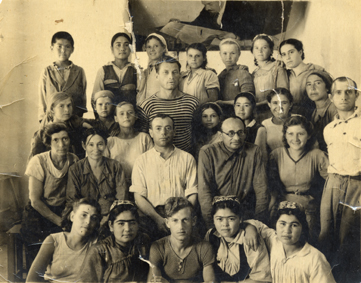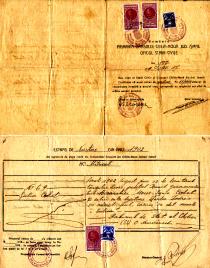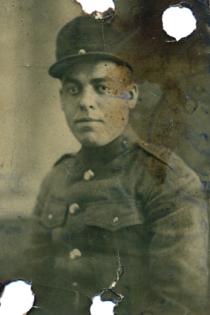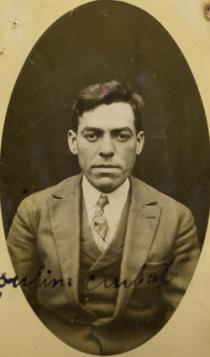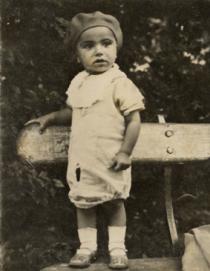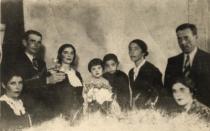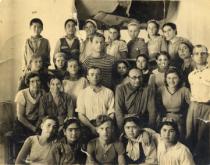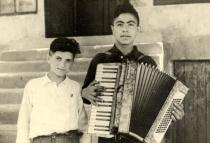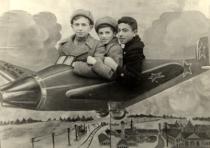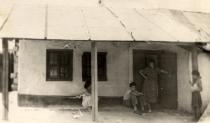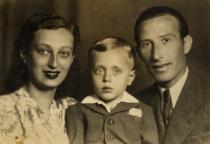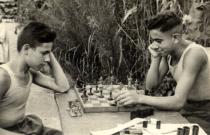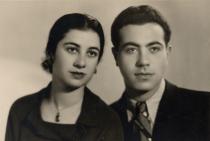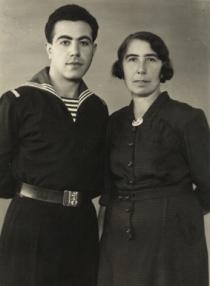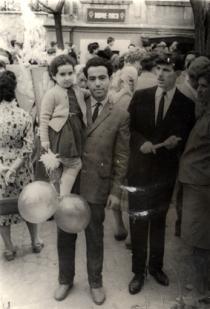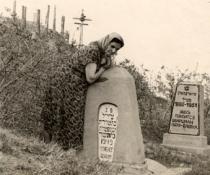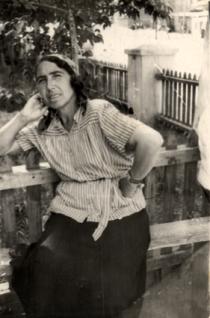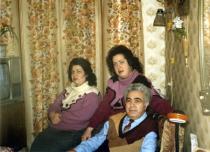These are the workers at the garment factory in Dzhambul where my mother Roza Chubat worked during the war. She is sitting to the left in the second top row. The picture was taken in November 1945 on the day of the anniversary of the October Revolution.
During the war my mother and I were mobilized to a tobacco kolkhoz. We took a carriage, driven by a Cossack. On the way our carriage drove into an aryk and overturned. Our things, a suitcase with documents and pictures, fell into the river. We were rescued by a military man, who was resting on the bank of the aryk. He also helped getting some of our things from the water. Our documents and pictures couldn't be salvaged. We dried our things and moved on to the tobacco kolkhoz. I went to the field with my mother and helped her put the leaves on the frames for them to be dried. We didn't stay there for long. As per our assignment of the military enlistment office, we went to the kolkhoz in Pervomaysk district. We settled in the house of a woman, who lived with her son. My mother and I shared a bed. There was also another family who had evacuated from Dnepropetrovsk.
We were famished. Once my mother exchanged the grain, acquired by the cards, and the miller gave her flour, fertilized for the planting. All evacuees who got such flour got ill. I barely survived. It was the straw that broke the camel's back and my mother decided to leave this place for Dzhambul. She sold our things and paid a Jewish guy, the driver of a fuel truck, to take us to Dzhambul. He profited by that. He took an outrageous amount for tying my mother and me to the cisterns and taking us to our destination. In Dzhambul my mother found a job as a seamstress in a shop where jerseys for the lines were sawn. Mostly Jews worked here and the director was also a Jew. So it was easier for us. When my father had left for the front, I felt like an adult and became more responsible. I wanted to help my mother. I met some Jews from Poland, who were selling goods at the market and helped them in their business. I ran errands like taking the goods to the market, and give money. I was paid for that. When I gave my mother ten rubles, she couldn't believe I had earned them. I had to introduce my mother to my employers. I practically didn't go to school when I was in evacuation. I didn't have winter clothes. In Dzhambul I started schooling. There were no letters from my father, but there was no notification of his death either. Until the victory day, my mother had been hoping that my father was alive.
